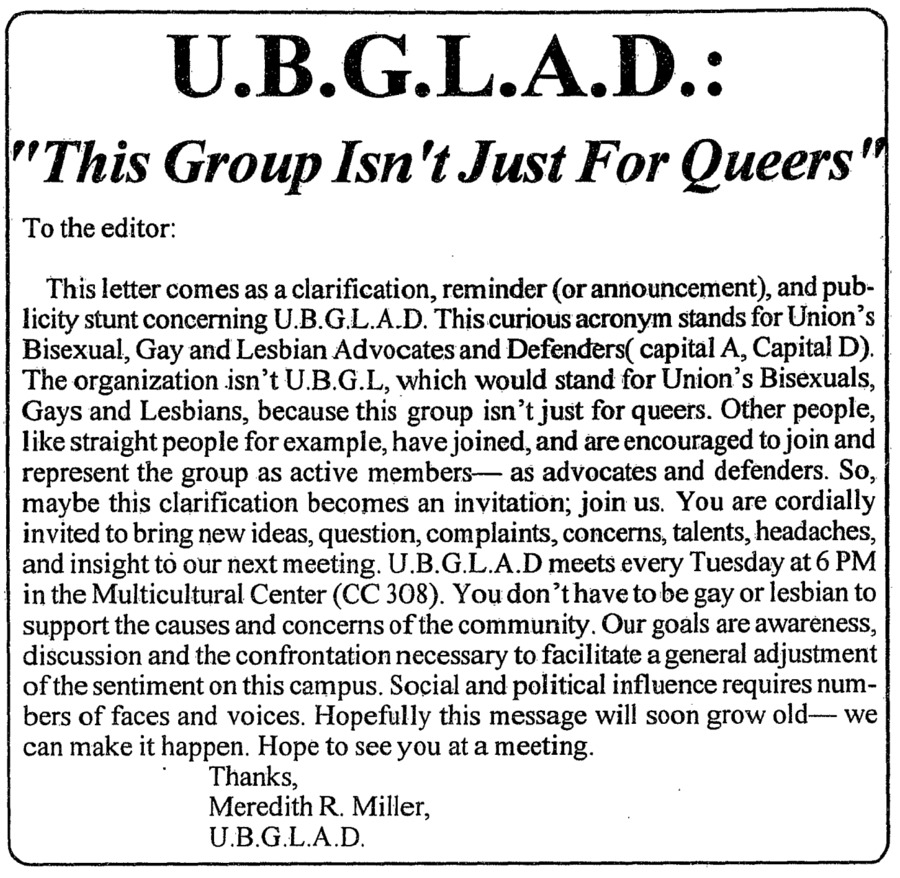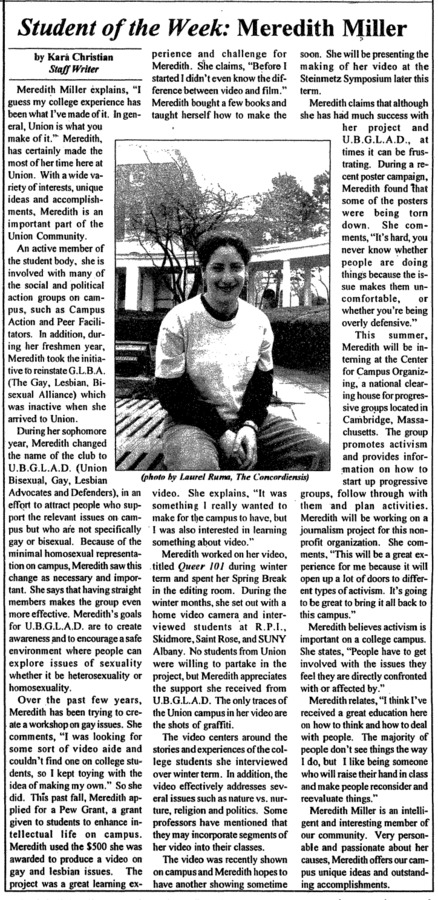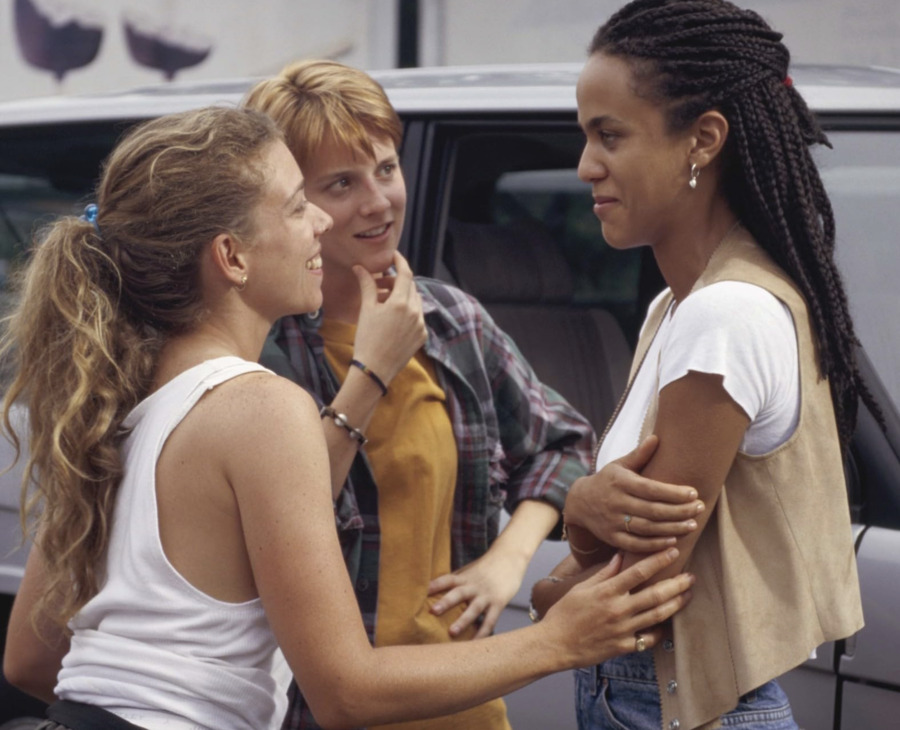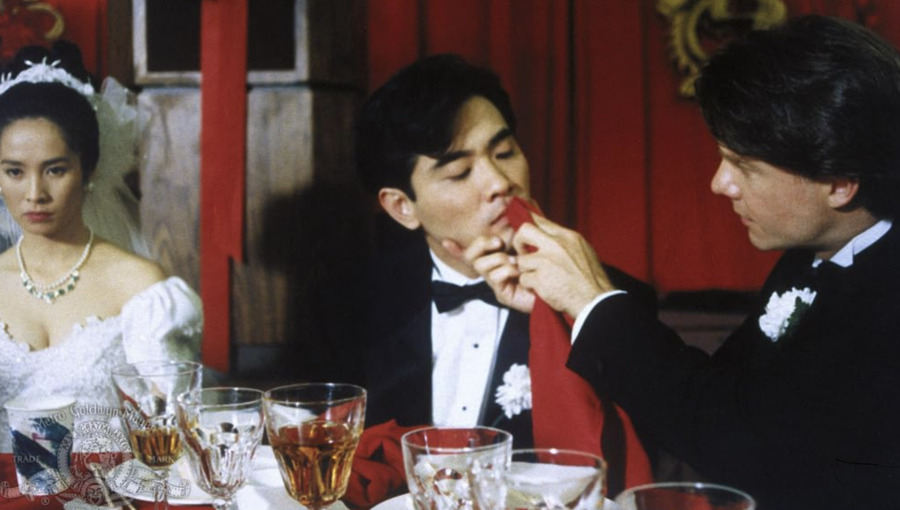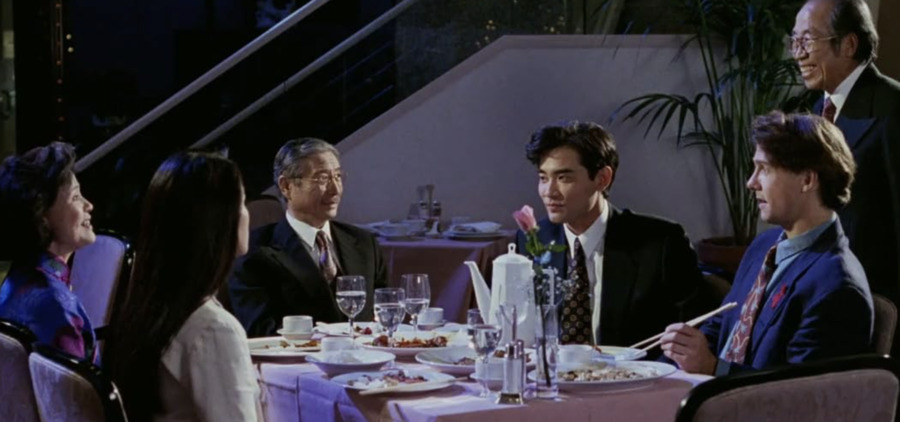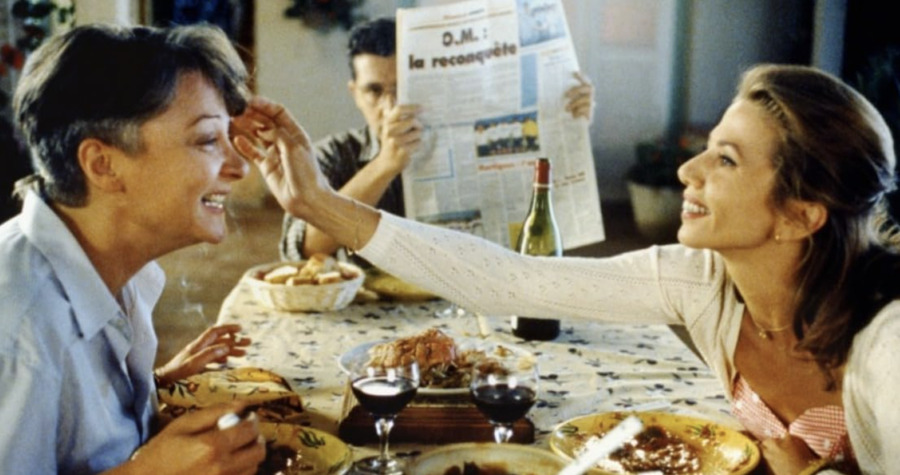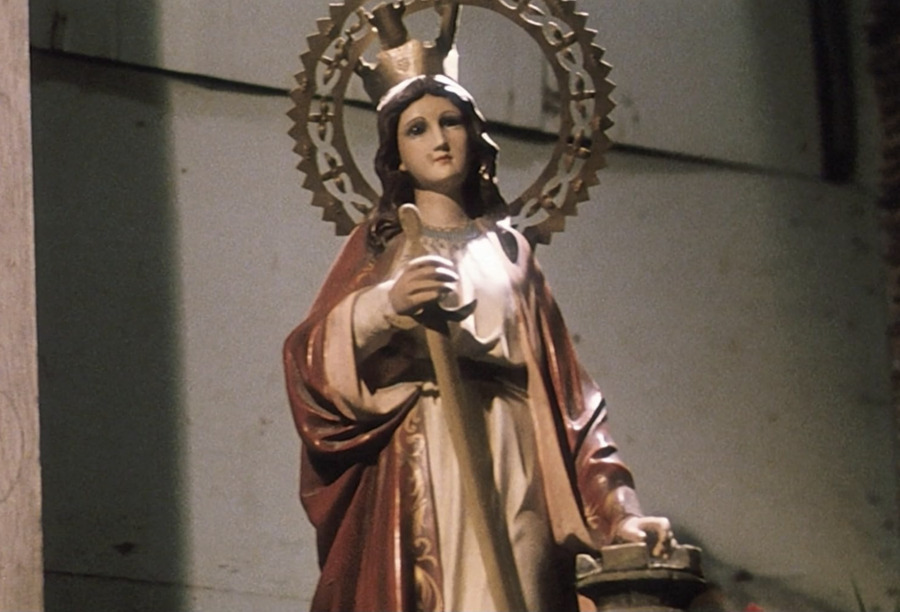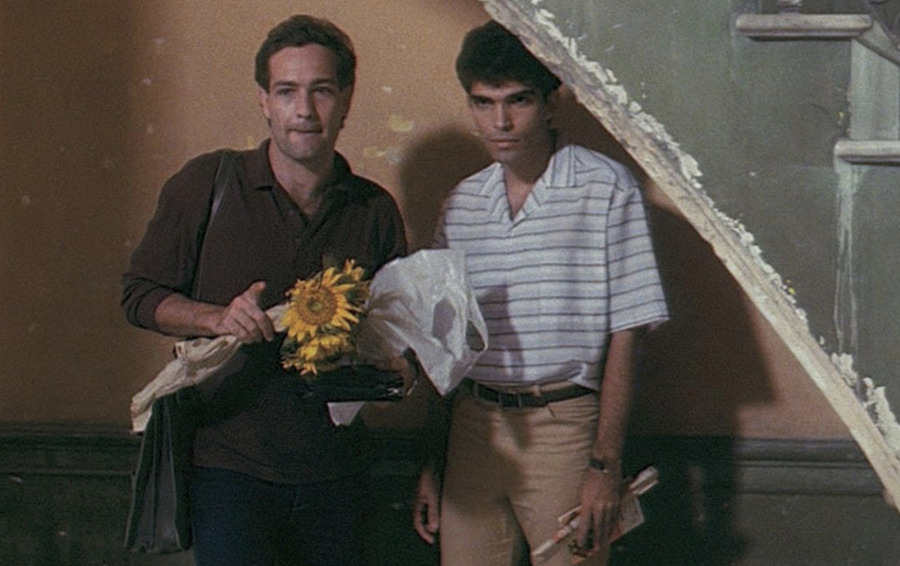"This Group Isn't Just for Queers"
UBGLAD
It appears that upon Letriz’s 1991 graduation, the GLBA became inactive, following a very similar lifespan to its predecessor, the Gay Discussion Group. However, new life would be breathed into the club within a matter of two years. When Meredith Miller, class of 1997, arrived on campus in the Fall of 1993 and found the GLBA dormant, she took it upon herself to reinvigorate and lead the group.The following year, Miller renamed the group U.B.G.L.A.D., an acronym standing for Union’s Bisexual, Gay, and Lesbian Defenders and Advocates. This name change represented Miller’s goal of engaging heterosexual members of the Union community in LGBTQ+ activism as allies, growing the scope and size of the club. Many of Miller’s advertisements for the club focused on attracting a wide audience to the meetings, such as a 1995 ad aptly titled “This Group Isn’t Just for Queers.”
A May 1996 piece in the Concordiensis celebrating Miller being awarded "Student of the Week" describes the various facets of Miller’s campus involvement, including tracing the history of UBGLAD. The piece then discusses the fact that Miller searched for a video aide on LGBTQ+ topics that was aimed at college students, but was unable to find one, so she applied for a Pew Grant in the fall of 1995 in order to secure funding to make her own. According to the interview, Miller knew little to nothing about filming or editing before undertaking this project, so she began her work by self-teaching herself video production. During the winter of 1996, Miller interviewed college students at RPI, Skidmore, Saint Rose, and SUNY Albany. Notably, the article states that “no students from Union were willing to partake in the project.”
After Miller spent her spring break in the editing room, the final product, a video titled Queer 101, was shown on campus in the Spring of 1996. Miller presented on the process of creating her video at that year’s Steinmetz Symposium.
UBGLAD cemented itself as a very active presence on campus. In October of 1996, the club hosted “Queer U,” which they described as “a month of education and action.” The calendar, shown below, was filled with a myriad of events, including film screenings every Wednesday, condom handouts, talks and workshops focused around particular topics, an LGBTQ+ alumni and parent reception during homecoming and parents’ weekend, and a dance party scheduled for National Coming Out Day.
A calendar handwritten on neon pink paper documenting UBGLAD's events for the month of October 1996, which the group deemed "Queer U."
UBGLAD's Queer U Calendar
As demonstrated through her formation and leadership of UBGLAD and her creation of Queer 101, where Miller did not find the resources she desired, she created them.

